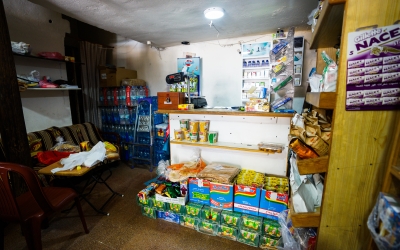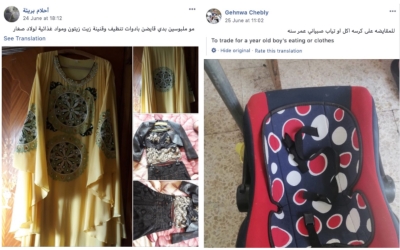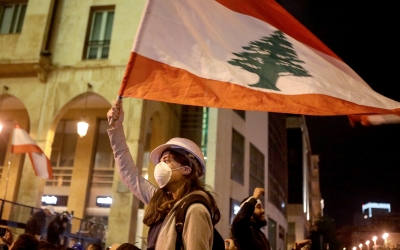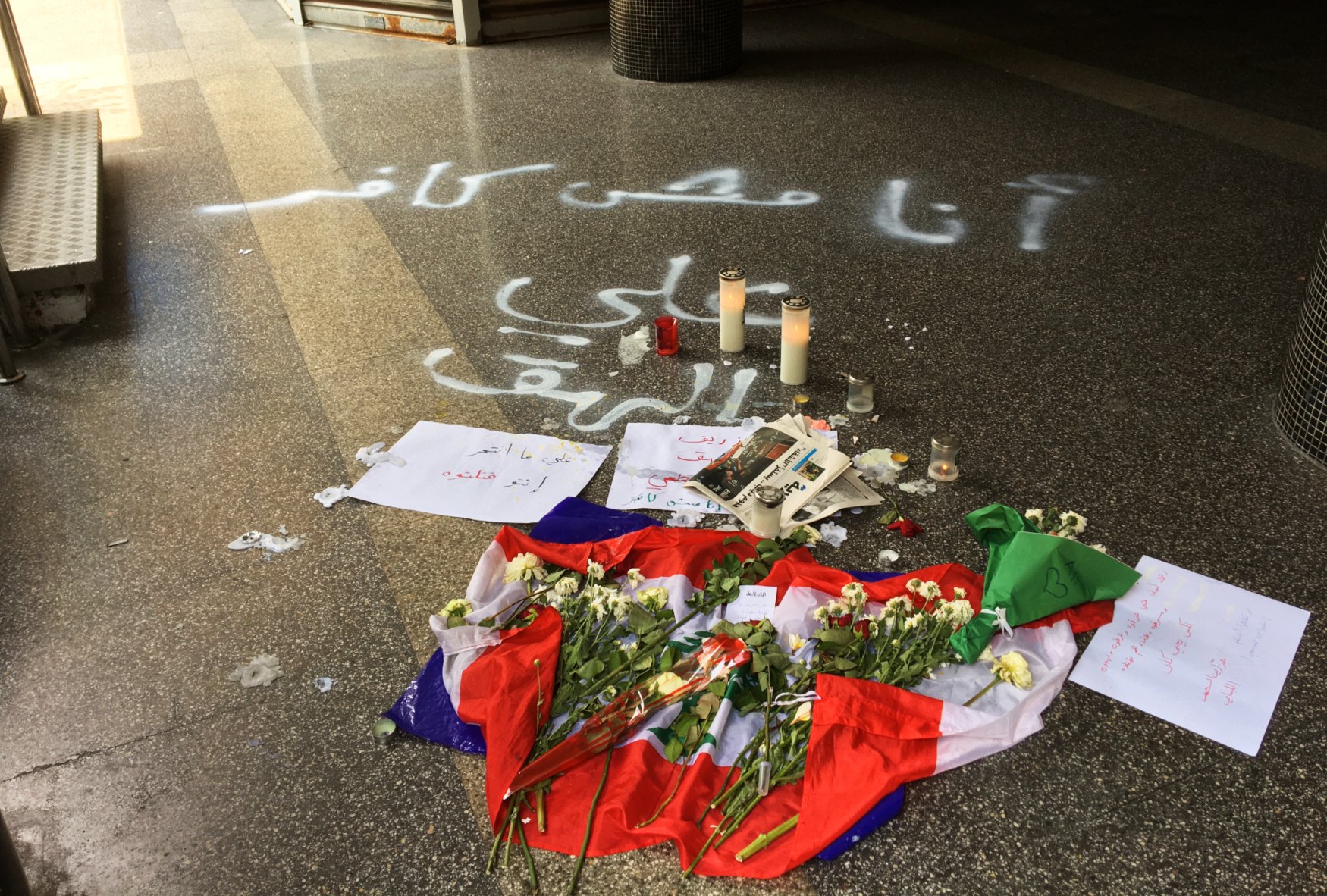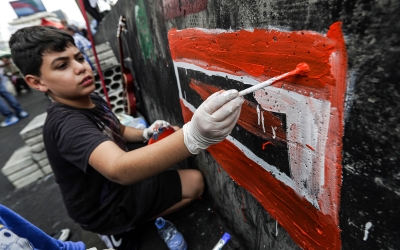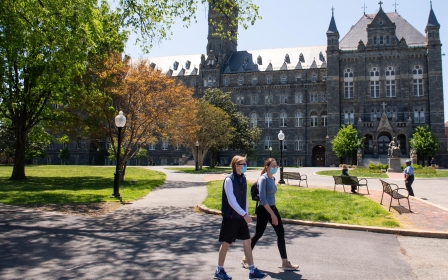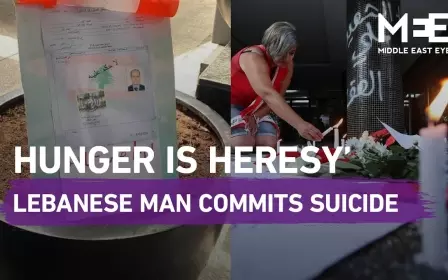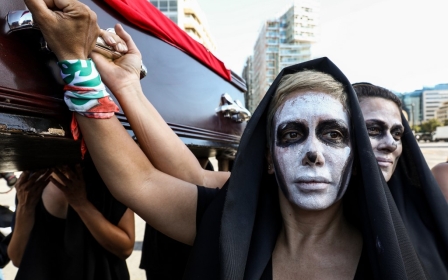Broken Lebanon: Economic crisis takes its toll on country's mental health
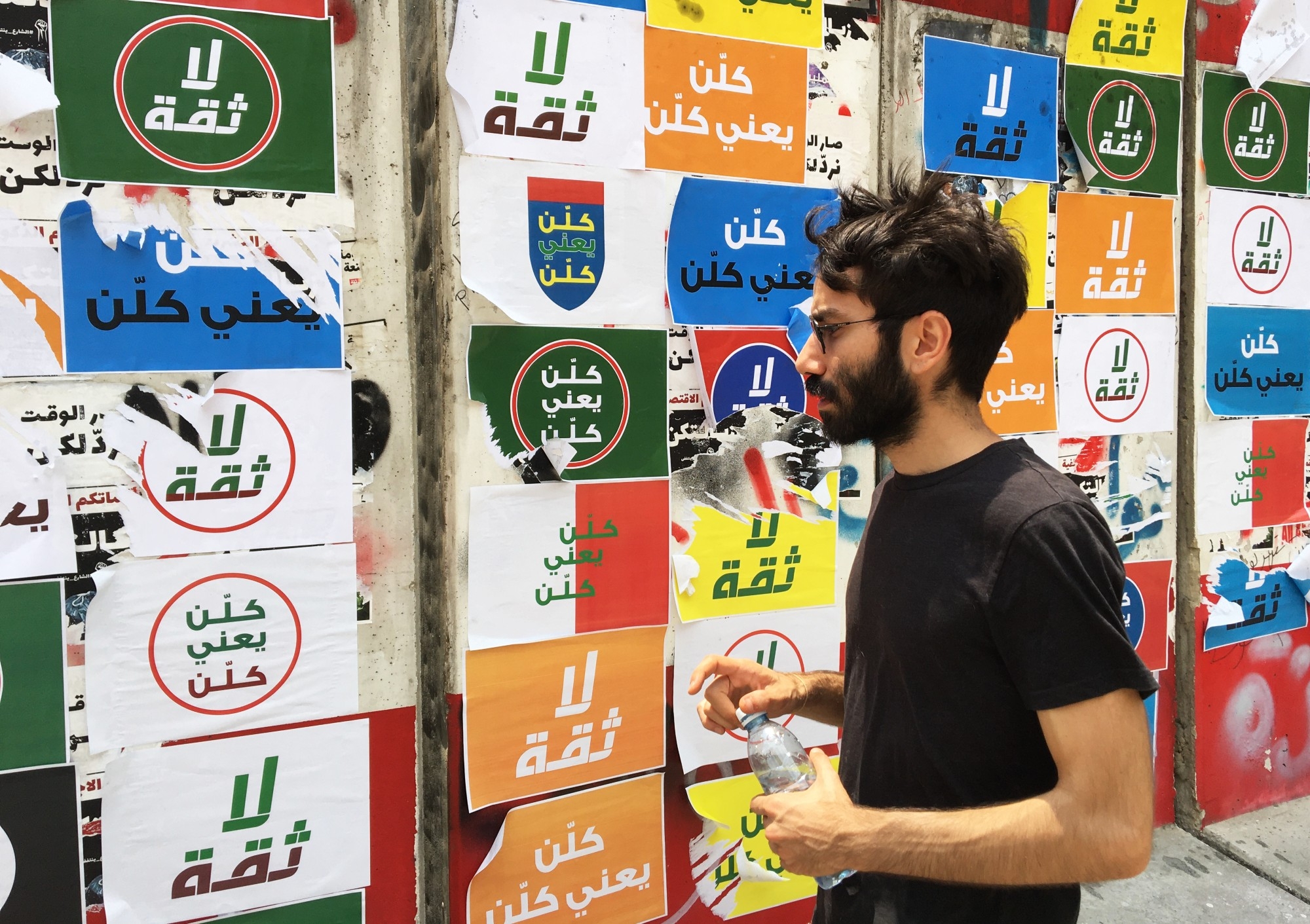
“For the past week I’ve been waking up crying because … what the hell is happening?” Lebanese filmmaker Jean-Claude Boulos says as he takes out a cigarette. “You go to university, you study with goals and ambitions…only to be stuck in this box.”
The 28-year-old sits on the steps by the Azarieh building complex in downtown Beirut, a common meeting place during the height of Lebanon's uprising that began in October. Back then, Boulos says he felt an an intoxicating feeling of hope.
New MEE newsletter: Jerusalem Dispatch
Sign up to get the latest insights and analysis on Israel-Palestine, alongside Turkey Unpacked and other MEE newsletters
Like many other Lebanese, he has struggled to make ends meet and find economic stability for years. Now, mundane day-to-day routines have become a daunting task for Boulos and countless others.
The economy is in freefall, and so, too, is the mental well-being of broken Lebanon.
In December, Lebanese media documented several deaths by suicide, including 40-year-old Naji Fleeti in the northeastern border-town of Arsal, reportedly linked in part to economic hardship.
Six months later, Lebanon’s economic crisis has worsened, and continues to devastate its people with no clear end in sight. The country’s currency has devalued by roughly 80 percent and food prices soared by around 56 percent, with as much as 60 percent of the population set to live below the poverty line by the end of the year.
As several suicides caught the country’s attention earlier this month, the impact of economic and political hardship on psychological wellbeing - and the difficulties in accessing mental health support - has once again come to the fore.
Economic desperation
“I am not a heretic”: those were the words 61-year-old Ali al-Haq wrote on his clean criminal record, which he was carrying along with a Lebanese flag, before shooting himself on Beirut’s well-known Hamra Street on 3 July.
His words echoed a line from a famous song by Lebanese musician Ziad Rahbani, which continues with “but hunger is heresy”.
Eyewitnesses say Haq, while standing by a crowded Dunkin’ Donuts in front of the popular Metro al-Madina theatre, cried out for a free and independent Lebanon before he took his life.
That same day, a 37-year-old van driver and father of two took his life in his home just south of the city of Saida.
Haq’s public and tragic death sent shockwaves across Lebanon. Hours after his death, a protest took place at the location of his suicide, condemning the country’s ruling class, as tributes poured in online with the hashtag #أنا_مش_كافر (I am not a heretic).
“Suicide has become a very extreme type of protest in those dire situations, but in any case mental health and suicide are the result of broader social problems,” Rima Majed, a sociology professor at the American University of Beirut, told MEE.
While Majed clarified that economic hardship was not a surefire cause of suicide, “it’s about deprivation - the perception of where people were and where they are now”.
Majed says that individual cases, such as Haq’s, have been problematically “tokenised” and taken out of context - in an attempt to portray these as isolated incidents instead of reflecting a troubling broader pattern.
“There are way more people committing suicide in their homes, but we don’t hear about it,” the sociologist said.
Mental health and the uprising
As Boulos sits by the walls of Beirut covered with revolutionary and anti-government slogans, he recounts his own experience trying to manage his mental health in increasingly difficult circumstances.
“I went to therapy in 2016 because of the economic crisis - I couldn’t afford anything,” the 28-year-old filmmaker told Middle East Eye. “I don’t want to live in a penthouse, just a normal life that’s decent.”
When anti-government protests first erupted back in October, Boulos spent every day at the demonstrations. But he says his mental health has significantly worsened as the country continues to rapidly spiral downwards.
Tala Ladki, 25, has also rarely missed a protest since last October, and took part in dozens of fundraisers and charity drives to help those in need.
The communications professional has struggled to find stable work in recent years.
“There has been talks and signs warning us that something like this would happen for years, but I never expected us to be living in the conditions we are living in today,” she told MEE.
Ladki tries to find solace in her cat Oreo and the freelance work she occasionally comes across while at home. But Lebanon’s collapsing infrastructure is a bleak reminder of the situation she’s in, describing it as a “black cloud”. Most recently, a fuel shortage had caused a surge in power cuts across the country.
The distressing situation has become a frequent topic of conversation among her closest friends, many who now have shaken off their intoxicating optimism and drive during the uprising. “People are just looking out for their own backs now with not a single promise of a tomorrow,” she said.
Wanting to counter what he calls the media’s “vilification” of protesters, Boulos and some friends formed Fawra Media in October, in order to share more compassionate stories of people they met during the uprising and different initiatives taking place in public squares across the country.
But Boulos says Lebanon hasn’t reciprocated that compassion.
“The economic crisis is not the sole reason for all this, but it is creating mental distress to a lot of people who never experienced it before,” he said while strolling past a demolished storefront. “They worked hard their whole life to have a little money saved and suddenly the banks took them away.”
Lebanon’s only airport reopened on 1 July and, not surprisingly, most tickets out of the country are one-way. Its distressed population, especially its youth, have resorted to trying to make ends meet elsewhere, in yet another Lebanese brain drain, a story that has repeated itself for generations.
Both Boulos and Ladki are adamant on staying in Lebanon. “It’s not easy to live as an immigrant,” Boulos said, denouncing what he says is the romanticising of life abroad. “They look down on immigrants anywhere (you go) in the world.”
Ladki echoed similar sentiments, but is alarmed by her family and friends who feel destined to start life anew abroad.
Breaking the silence
It’s been years since Boulos last saw a mental health professional - but he expresses concern for the well-being of people who never had the means to even consider seeking professional help.
Only one in ten people in Lebanese suffering from mental illnesses have access to the care they need, the health ministry said in a 2018 press release.
Like most things in Lebanon, services that ought to be free come at a price. Over 80 percent of healthcare facilities are privately run. On top of that, Lebanon’s 2020 state budget cut healthcare spending by 7 percent, including in provision of medicines, hospital fees, and laboratory equipment.
A report from the ministry, aimed at revamping Lebanon’s mental healthcare services between 2015 and 2020, also revealed that medical staff in Lebanon “do not receive proper training on mental health and psychosocial interventions”, and, much like healthcare in general, most mental health services are provided by privately run facilities.
Lebanon’s mental health lifeline falls on Embrace, a non-government organisation with a suicide helpline that can be reached at 1564.
But there may be silver linings to the dark clouds that reign over Lebanon.
To openly discuss mental health struggles remains a stigma for a large part of society. But now, with no affordable mental healthcare and no economic recovery foreseeable in the near future, people have realised that it’s okay to not be okay.
WhatsApp groups between people that coordinated protests or shared news have developed into support groups.
“We’re talking about suicide as a result of the economic crisis - it’s no longer framing it as an accident,” Boulos said. “Fawra has always been advocating for mental health. We try as much as possible to include content about mental health.”
The filmmaker was also moved by the number of “strangers” who reached out to him, after he shared a Facebook post about his anxiety, and encouraged others to speak out more.
Ladki says that Lebanon is in for a “tough and bumpy ride”, but is hopeful that people will overcome it.
“What keeps me going is [knowing that] we're in a pool of garbage right now, but we won't always be,” she said. “But hopefully we'll be walking out with a better country for our kids.”
Middle East Eye delivers independent and unrivalled coverage and analysis of the Middle East, North Africa and beyond. To learn more about republishing this content and the associated fees, please fill out this form. More about MEE can be found here.


